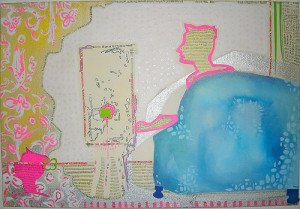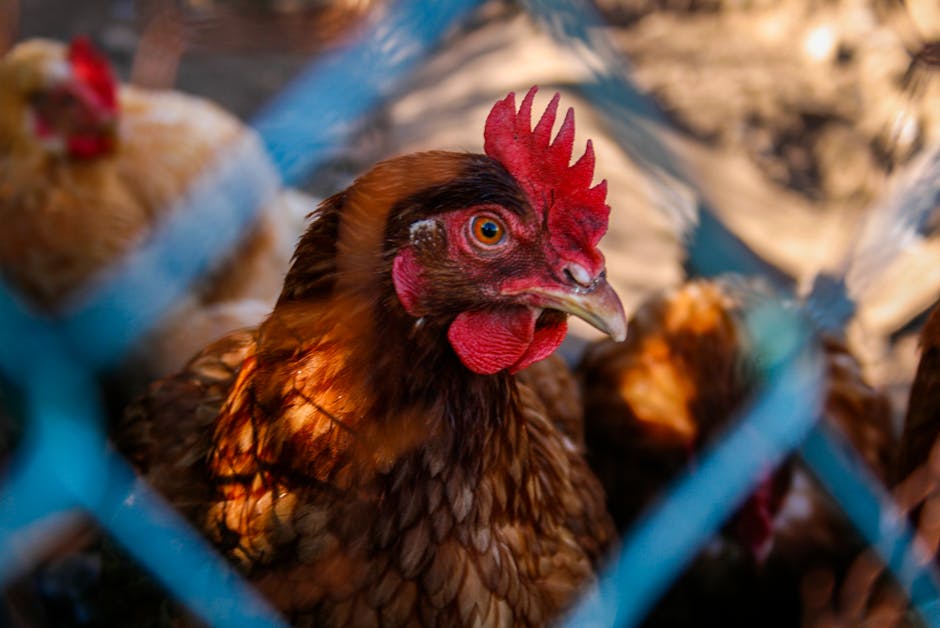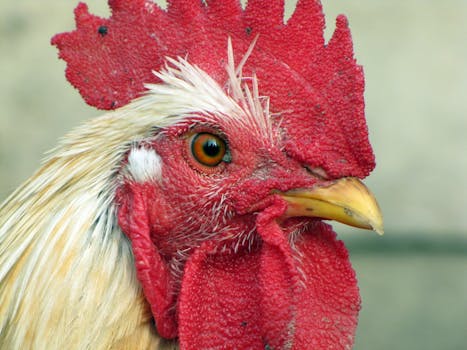Arjun shifts onto his right side. If he waits a moment he will have sufficient energy to
rock himself sideways and out of bed. But the energy doesn’t come. He waits.
Once it was easy to rock up, but now he has to use his body’s weight to ease himself
off the mattress. And he must take his time. Any small slip and he will slither off
completely and Sunila will panic and scream. Why couldn’t you call me for help? Why are
you so stubborn? Why can’t you just do something simple like wait for help? Then
prediction. You’ll have broken your hip/back/head.
He thinks of Just Desserts. Just don’t think I’m going to visit you every day. In this stage,
the suffering is transferred to her and he can stay in the background as the source of her bad luck.
As he has learned, it is better to wait. Most of the body’s cravings can be subdued,
as he learned even before he became sick.
It is difficult to remember that time. He was Thirty. Forty? No the first attack was
before then. He was thirty-six. So he was healthy until he was thirty-six. He marvels at
this other self whose body performed daily miracles; standing, turning, lifting, running
up the stairs two at a time.
And even further back, in the time of legend, he played Squash for the All-India
team. Who was this person who wore white shorts and ran after small rubber balls
with such speed and accuracy? Surely he was a superman in those days. He wonders
if those other squash players are also lying in bed and wondering where their bodies
went, wondering at which date the synaptic rush and response slowed and failed.
And even further back, there was his boyhood in India. How easily, fluidly he ran up
and down mountains, as though up were almost the same as down. How he jumped
over rocks, between rocks, balancing with his arms flung out, his body leaning this way
and that as the impetus carried him forward, forward.
In some faint responsive memory of movement, he moves his legs and finds he can
ease himself off the mattress. He holds on to the bedrail with both hands and steadies
himself as his feet touch the ground. He is sitting upright.
He smiles at the triumph; he can still get out of bed by himself, which means he can
still go to the bathroom by himself. Small victories. He can’t even brag to Rob, his
grandson. Rob is not only well past the stage of getting out of bed by himself but he
doesn’t even need a safety rail at night anymore.
Arjun realizes with humility that he is far behind his grandson, who is bounding
ahead into his future. That future won’t contain Arjun or his stories about tigers and
elephants, his descriptions of the mountain ranges of the Himalayas, his peanut and
monkey jokes.
He has become accustomed to letting go. He is no longer anxious to keep up with
Rob. Occasional accounts about his progress in school or on the football team are
enough. These days, visitors, particularly children, are exhausting and he feels an
overwhelming lassitude from the moment they arrive to the moment they leave.
He steadies himself as he takes the weight on his legs, both hands firmly on the
walker. Now to walk. The coordination that goes into walking is astonishing. He
pushes the right leg forward first and leans on the walker, then the left leg. It takes a
few steps to get into his shuffling rhythm and then he is on his way to the bathroom.
He takes his time, making sure the door is fully open, that he can sit with his walker
in front of him. How long has it been since he was so indignant about having to sit to
urinate? Now he is merely relieved to sit after the walk to the bathroom.
What importance he used to attribute to things that now seem so small: his perfectly
ironed shirts, the knife-like crease in his pants, the well-tailored jackets and suits, his
meticulously folded socks and underwear, his Kiwi-polished shoes, his leather billfold.
These details made him feel a little taller, a little better prepared to face the hostile
country he had moved to.
He remembers pushing Roxi aside so he could iron the shirts that Sunila wouldn’t.
Roxi had wanted him to read to her. Another time, Murad had nervously waited on the
stairs for something or another, but Arjun was polishing his shoes. Couldn’t the boy
see he was busy?
It was Roxi’s job to lay the table, but it was never done properly. He remembers how
he would have Roxi straighten knives, move glasses over an inch or two so they were
correctly aligned, re-fold the napkins.
Murad was responsible for washing the dishes while Roxi dried. Murad was
mournfully methodical. Roxi was careless, swiping at plates and rubbing handfuls of
silverware together in the towel and jumbling them into the drawer. How many times
did he have to order her back into the kitchen where she angrily re-dried plates and
pans, or sorted out the silverware drawer?
It all meant something but he can’t remember what that is. Some sense of decorum,
some sense of fitting in to the middle class neighborhood whose ideals he’s never
quite grasped.
But their neighbors are now used to them. They’ve been there for fifty years;
they’re the old-timers. He’s seen nearly all the houses on the street change owners at
one time or another.
Now they are the sweet old couple at number 4, Oriole Drive (Ah, bless). Sunila
greets everyone with a friendly smile and wave, invites them in, offers them tea, hands
out cookies to the children on their way home from school. She has achieved her
coveted position of being accepted. She is harmless and old.
Her high heels no longer strike static from the sidewalk as she busies to work and
back home again with carrier bags of groceries. The children are gone; there is no one
to scream at in the evenings. She can’t even scold him for long without becoming
breathless.
He used to laugh at her as she retreated to the kitchen coughing and angry. But
now he sees that this is how she stays alive; this is the vigor which allows her to
dress him, cook for him, wash him, help him to the bathroom in the day, turn the TV on
or off, fetch his photograph albums, take them away when they are too heavy to hold,
reach down books for him and re-shelve them when he can’t remember the page he
wants.
Now he becomes anxious if she coughs too much. He urges her to rest, to take more
time upstairs watching her soap operas on the bedroom TV.
Now that it is too late, he has come to love her. Even if he could find some adequate
language to tell her, she would dismiss him, would think he was trying to manipulate
her, would correct his syntax, would think he was becoming sentimental as the old
often do. She would never understand what it has taken for him to reach this point.
It doesn’t matter. He loves her ignorance, her wide-ranging prejudices, her quick
judgment of other people, her feelings of inadequacy, her suspicion of those who she
feels are somehow ‘better’; her inability to follow a simple argument, her inability to
follow simple directions her instinctive dislike of anything artistic, including art. He loves
her sad walls of exclusion, including those exclude her from anything that might
demand a little understanding outside of the terrible moral code by which she
attempts, and often fails, to live.
In the early mornings, while he is meant to be asleep, she sits in the least
comfortable armchair near the gas fire, bent over her Bible. He is still amazed at her
conversion to Christianity. She claims is it her refuge and her strength. But, perhaps it
was only that the Hindu gods were too many, too confusing to remember, somehow
not quite respectable.
Her lips move over the verses which spell out her failure in stark formulaic King James
prose with its incomprehensible italics and emphatic pronouncements. Thou shalt not.
But she shall, she does, she cannot help herself. And worse than her voice raised
against him, the words that ricochet out of her mouth, the fists clamped against her
sides, is that sudden recognition, I’ve done it again. I’ve done it again. And she abruptly
turns to the kitchen, to vent her despair on the clanging pans.
It is then he longs to tell her, “I know you’re angry. It’s all right to be angry.” She would
not believe him. It isn’t Christian to be angry. Even Christ, famously angry in the
temple, got over it.
Her anger has lasted all her life.
He doesn’t ask where it comes from. Does it matter? A spoiled child, she was given
everything her impoverished family could manage. He sometimes wonders about the
older sisters. Perhaps they resented her and that also fueled her anger. Perhaps she
just felt she didn’t get what she deserved.
So often, she has sighed after luxurious items, blaming him because she cannot hold
her head up since she doesn’t have a washer and dryer, convection oven, an Aga
stove, full central heating, silk velvet curtains, a nicer car.
No one else bought a Fiat, a Honda. She sneered at these bright, practical little cars.
When, by some strange combination of events he bought a BMW she was thrilled. He
was baffled to hear her refer to him to their church friends as her dear Arjun. How
quickly she adopted language and manners appropriate to one who owned a BMW.
She drove everywhere on errands, for visiting this poor old dear, that poor sick lady.
The elderly had never benefited so much from her Christian outreach.
He hated the car. It was too big, difficult to maneuver, costly to run and insure. She
backed it into a lamppost and then into another car, and their insurance soared. He
sold it as quickly as he could and immediately felt her deflate. He felt sorry for her,
quietly admitting to Mrs. Benson, “We’ve sold the car. Too many accidents, you know,”
as though the car led an independently willful life, rear-ending and colliding where it
would.
Mrs. Benson had nodded elegantly and immediately Arjun had seen how Sunila had
copied the gesture, the you know, the half-abstract air.
He felt badly for her, but couldn’t see why she tried so hard to be like them, the
British, with their coldness, their inability to speak their own language correctly, the
assumption of superiority where none existed.
As he shuffles his walker back into the living room where he can finally sit down on
his bed, he has the impression that someone else is in the room. Perhaps Sunila heard
the toilet flush and woke up.
He positions himself and sits and then says, “Did I wake you?”
“You might have done, you took that long, you stupid old git.” The voice is young,
male and cold. A flashlight is shone directly at his face. There is a crash and swearing
as the flashlight is dropped and a chair is overturned. He expects a blow to the head.
He expects that he must die now. He hopes he will have the chance to say that they
have very little money in the house, but to take whatever there is downstairs. There is
nothing upstairs. Perhaps he can save Sunila from this final shame of being humiliated
and hurt by a maniac child.
But the blow doesn’t arrive. There is heavy breathing and the voice says, “You’re
Indian, intcha?”
Arjun manages, “Yes, I am. Please take what we have down here. I can tell you
where it is.”
“I can’t take nothing from you, you old bhenchod.”
Arjun flinches at the language. Even now he cannot accustom himself to the casual
way that young people swear. And then he realizes the boy is Indian, hence the
swearing in Hindi. “Beta, don’t hurt us. Or, if you must, then hurt me. Leave her be.”
“Shut up. Don’t say anything.” A pause. “Maderchod.”
“Beta, please don’t swear.”
“Don’t call me son. I’m not your son.”
“I’m sorry.” Arjun tries to slow his breathing down before the panic attack starts.
“What the fuck am I meant to do now? I mean, I go to all the fucking trouble to
break into your bhenchod house and you’re fucking Indian.”
“Son, can we put the light on?”
“Oh, so you can see me and report me to the police, I suppose.”
“Who is going to believe a sick old man?”
“Oh yes. Rub it in. Not only can I not smash your maderchod head in and take your
money, I have to turn the light on so you can make a positive ID. Well, why not? Why
not just make the whole fucking evening complete?” There is patting and slapping as
the young boy feels his way around the room. More swearing as he contacts the sharp
edges of the credenza.
“The light is just here behind me on the wall.”
The boy comes closer. “Hold on.” There is a struggle with some kind of material and Arjun
hopes he isn’t about to be blindfolded. Then the light is turned on. Arjun doesn’t move.
The intruder comes around to him. He is dressed in black sweats, and wears a black
balaclava, obscuring his nose and mouth. He is a large boy with thick eyebrows.
As Arjun blinks against the light, the boy comes into focus. Arjun says,
“You are so young.”
Slightly muffled by the wool, the boy says, “You don’t know how old I am, do ya?”
Arjun considers the smooth skin. “Sixteen? Seventeen?”
“You’re wrong. I’m fifteen.”
“You are such a big boy.”
“My mum’s side. We’re all big. You should see my sister. She’s huge.”
Arjun has a vivid picture of a teenage girl crammed into sweats wearing a similar balaclava
and tries to dismiss it before he starts smiling. This is no smiling matter. Despite the fact the
child is so young he could easily do a lot of damage.
“You want the money? I can tell you where it is.”
“You got money here?” The brief note of hope is dismissed. “Nah. I can’t take your money,
uncle.”
“But, you went to all this trouble. Breaking in and what-all.”
“How come you’re Indian? Me mates told me no one’s Indian over on this side.”
Behind the balaclava, Arjun thinks there may be a ferocious sulk going on.
“We’ve been here for many years. No other Indian families moved in. What to do?”
“How long you been here, then?”
“Almost fifty years.”
“Fuck off. I mean, you’re joking, right?”
“It’s almost fifty years. So many people have come and gone.”
“Yeah, well I didn’t come here to listen to all that.”
“Son, go to that cupboard over there. There’s money. Take.”
The boy pulls the cupboard door open, squats down and pulls out a few envelopes. He
leaves them on the floor. “If only I’d hit you like I was planning. Then I could’ve taken the
money and run.” He pushes at the balaclava. “It’s like Ashok says. I’m rubbish at this.”
“But if you’d hit me first, I wouldn’t have been able to tell you where the money was.”
“Yeah, but I hit you until you tell me.”
Arjun imagines the boy sitting enthralled in front of a detective show. “Son, that kind of
hitting is for a much stronger fellow than me. One hit, pachaak, and I’m done for.”
“Yeah. You’re really old, innit. No offense, like.” The boy sighs. “I better go.”
Despite his difficulty with breathing, Arjun is curious. “How did you get in?”
“Your front door, mate. You want to change the locks. Get one of them deadbolts.”
“Aha. I see.” Alert to the noises of the house, he hears Sunila moving upstairs. “Son, you
should go quickly. My wife has a phone upstairs. And we have one of these emergency red
buttons.”
“Shit. I’m off. Listen, uncle, get a deadbolt.” He hesitates, snatches up one of the
envelopes, and exits through the front door.
Arjun listens for the running feet, but there is nothing. Despite his bulk, the boy is light on
his feet. He admires the boy’s ingenuity. He must be experienced at breaking in to deal with their lock so easily.
He imagines Sunila, terrified upstairs, wondering whether it’s safe to come down. “Sunila.
Come down. He has gone.”
His voice is so weak he is certain she can’t have heard.
“Arjun? Are you all right?” Her voice is shaking.
“I’m fine. You can come down.” His heart rate is returning to normal but he cannot project
enough force into his voice to send it up to her.
“Arjun? Is the robber gone?”
“He’s gone. Come down.” He is frustrated with this upstairs-downstairs business. Must the whole neighborhood listen in? Why can’t she come downstairs and talk to him?
“Arjun? Are you there?”
“I am here, you deaf old cow.” He is shocked at his bad language, but there is pleasure in
the fact that she can’t hear him.
“Arjun, I called the police. It will be all right.”
He doesn’t know why she won’t just come down. “Listen, the boy is gone.”
“I am waiting here to see if you are all right.”
The flashing blue lights reflect through the curtains and he knows he will not tell the police
that the thief was just a child.
He waits while the police enter, check the premises, ask him questions which is he now
almost too tired to answer. No, he didn’t hear the robber enter. No, he didn’t get a look at
the robber’s face. No, the robber didn’t talk much to him, other than make vague threats. No, the robber didn’t harm him.
The police are intrigued with this last point. Old age and infirmity are rarely deterrents for
thieves. Did Arjun know the robber? No, he had never seen him before. About how old was
he? It wasn’t possible to tell since the robber wore a mask. A young man, he thinks.
“You’re lucky, sir. You could have been killed. It’s mainly kids. They’re after drug money. You know how it is.” Arjun doesn’t know how it is, but he nods anyway.
Sunila is brought downstairs. She can barely walk and when she sees him, she clings to the police woman and weeps. “Arjun. Arjun.”
He suddenly realizes she thought he was dead and was terrified of having to see his body. She continued to talk to him because she would not believe he was dead until the police told her. He imagines her crouched against the window upstairs, believing she was finally alone.
Her eyes are puffy from crying. She is leaning against the police-woman. He has a moment of sympathy for the officer. Sunila is not a light-weight.
And then he is irritated. She has had her moment. Another police woman is patting her
shoulder. “Mrs. Dasgupta, everything is all right. Your husband is fine.”
But she can’t resist. “Oh god, oh god.” And she weeps noisily. The two women officers try to get Sunila to sit, but she stays standing.
He clears his throat. He wishes for the strength of his voice so he could ask them all to
leave, so he could tell her exactly what he thinks of her hysterics. How can she behave in
such a low-class manner?
“I thought he was dead! I thought he’d been killed!”
Really. There is something indelicate, this shouting about his death with such gusto.
“Mrs. Dasgupta, please sit down. You’ve had a terrible shock.”
Arjun fumes silently. He was the one who could have been killed and just look at her,
hedged about with uniformed sympathy. Someone is in the kitchen making a cup of tea.
One of the officers speaks to him. “Mr. Dasgupta, I’m sorry to take up so much of your time. You must be very tired. I wonder if we could send someone over to talk to you tomorrow?”
“Yes. That’s fine.”
The officer collects the others, but not before someone has brought Sunila a cup of tea and she finally sits down. The tea-bearing police woman remembers and looks over at Arjun.
“I’m so sorry. Did you―?”
“No, thank you.”
Sunila stands up, in charge again. “He must get his rest. He’s not well, you know.” Gracious and bearing up under tremendous stress. He hates her.
The officers smile and pat her as though she is a well-behaved dog. She smiles up at them.
She sees them to the door and he manages to get himself back into bed.
With any luck, she’ll leave him alone.
But she comes in. “Arjun, are you all right?”
“I’m tired, Sunila. I want to sleep.”
“How can you sleep? You must talk about it, isn’t it? Did you see the robber? What was he like? I heard voices and there was all the banging and thumping. Did he steal anything?”
“I don’t know. I can’t talk about it now.”
“But what was he like?”
“Sunila, please. I want to rest.”
“I didn’t see anything. I was listening, but I didn’t get a look. I waited by the window to see
if I could get a glimpse. It would have been so helpful for the police.”
“You could have come downstairs and had a look at him.”
She tightens her lips and her nose whistles as she breathes in and out. “Oh yes. It’s easy for you. You were down here with every chance to have a good look at him. How are the police going to catch him without a proper description? You didn’t even try to see what he was like.”
“I was trying to avoid being killed.”
“He wouldn’t have killed you. He just wanted the money.”
“I gave him the money.”
She sees the open cabinet door. “He took the money?”
He hears the heartbreak in her voice. Not the money. He adds, “Not all. Just one envelope.”
“But that was for the poor people in Chad. I was going to take it to the bank tomorrow. To
send to the mission. And now it’s gone. What am I going to tell them? What if they don’t
believe me? They’ll think I just spent the money on myself.”
“Sunila, no one will think that. They will be sorry. That’s all.”
She is sorting through her envelopes and stacking them neatly back in the cabinet. How
often he has told her not to leave money there, but she won’t listen to anyone.
“Of course, he would take the one with the most money. They’re like that, you know. And
now those poor people in Chad will have to do without.”
“Sunila, take your money and put it in the bank.”
She closes the cabinet door and stands up. “Well, that’s it. Nothing to be done. No good
crying over spilled milk. Are you hungry?”
I’m not hungry you stupid old woman, I am exhausted from nearly being killed by a foolish
child. How can you stand there babbling about money for Chad?
And then he realizes; he is hungry.
“I’ve got some of that chicken curry. We can have with pilao, yes?”
She bustles off to heat the food and he feels the anger subsiding. The comfortable noises
of plates and silverware, the thunk and ka-thunk of the microwave door opening and shutting. The hum as it starts heating the food. The water from the faucet streams into the sink and she fills the kettle for tea. The fridge is opened and he hears the tuk of Tupperware being opened. She must have found the cucumber and tomato salad and his favorite coriander chutney. He imagines her arranging it all on the plate and putting the plate on a tray to bring to him.
He usually sits in the Laz-y-boy for his meals, but he can’t move from the edge of the bed. He tries leaning on the walker, but his legs won’t respond, won’t bend, won’t take his weight.
Sunila comes in. “I’m making some tea. Oh.” She stops. “Let me help.” She puts her arm
under his and eases him upright so that he can lean on the walker. Together, they shuffle to the Laz-y-boy and she helps him sit, plumping the cushions behind him so that he is propped forward.
“Thank you, Sunila.”
“Not at all. Can I bring your food?”
He smiles at her. “Yes, please.” There is gentleness in his smile. He wants her to see that he loves her. He wants her to see that he understands her panic. How strong she is. Instead of continuing to fuss over the money, she just gets on with the next thing and the next. After they eat, she will clear away the dishes and wash them. She will help him back into bed. And tomorrow, she will go on, cleaning and washing and cooking and helping him write his letters and reading to him when he is too tired to read for himself.
And after, as he listens to her climbing the stairs, quietly closing the bedroom door, he will pray for her. Lord, give her the strength she needs so that she can keep on doing the next thing. And the next.
When Sandra Hunter isn’t teaching at Moorpark College in Ventura, she toils up hills in Malibu where it is still possible to fly, by bike, above the clouds, she dances with her daughter on the beach and isn’t arrested, and she doubles the garlic in most non-dessert recipes. Her short stories have appeared or are forthcoming in New York Stories, the New Delta Review, Zyzzyva, Talking River Review, North Dakota Quarterly, Glimmer Train, the South Dakota Review, and others. “Hunger and Thirst” is part of a sectional novel with a working title of “Waiting to be Filled.”










